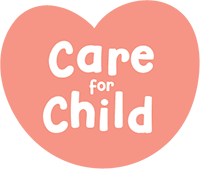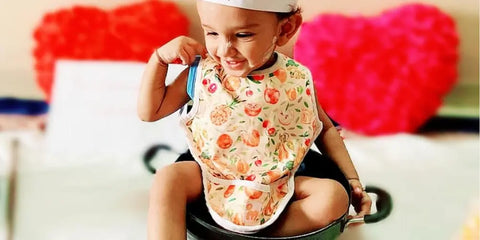Baby hiccups are like little surprises that come with the package of parenthood. They might catch you off guard, but they're usually harmless. As a new parent, it's natural to wonder why your baby gets hiccups, whether they're good or bad, and how you can help. In this Care For Child article, we'll explore the ins and outs of baby hiccups, from why they happen to practical tips for soothing your little one when they strike. So, if you've found yourself baffled by those adorable but sometimes annoying hiccups, read on to gain a better understanding and learn how to handle them like a pro.
Why Do Babies Hiccup?
Babies have hiccups for many reasons, not just because they're trying to mimic adults. Here's why those little hiccups happen:
- Immature digestive system: Babies' tummies are still figuring things out, so sometimes their digestive system can go haywire, causing hiccups.
- Air swallowing: When babies feed, they might gulp some air with their milk or formula. This air can tickle their diaphragm and lead to hiccups.
- Temperature changes: Going from warm to cold or vice versa can sometimes trigger hiccups in babies. It's like their body's way of adjusting to the change.
- Gastroesophageal reflux (GER) is a fancy way of saying that sometimes, stuff from the stomach sneaks back up the food pipe, causing hiccups.
So, in summary, baby hiccups are often just a sign that their tiny bodies are still getting used to eating and digesting.
Are Hiccups Good for Newborns?
Yes, surprisingly, hiccups can be beneficial for newborns in several ways:
- Lung Development: Hiccupping helps strengthen the muscles involved in breathing, which is essential for healthy lung development. By exercising these muscles, hiccups contribute to improving respiratory function in infants.
- Reflex Training: Hiccups serve as a form of reflex training for the diaphragm and respiratory system. As newborns experience hiccups, their bodies learn to coordinate the muscles involved in breathing, promoting better control and efficiency over time.
- Digestive Aid: In some cases, newborn baby hiccups may help release trapped air from the stomach, providing relief from discomfort associated with gas or indigestion. By expelling excess air, hiccups can help alleviate any potential discomfort and promote digestive comfort for the baby.
While hiccups may initially seem bothersome, especially for new parents, understanding their potential benefits can provide reassurance. In most cases, hiccups are a normal and healthy part of infancy and typically resolve without intervention. However, if you have concerns about your baby's hiccups or overall well-being, it's always best to consult your paediatrician for personalised guidance and peace of mind.
Tips on How To Stop Baby Hiccups:
When those tiny hiccups interrupt your baby's peace, try these simple tricks to help you learn how to stop baby hiccups:
- Gentle Patting: Lightly pat your baby's back or gently rub their belly to help soothe the spasms in their diaphragm.
- Burping Break: Pause feeding to burp your baby, allowing any trapped air to escape and reducing the likelihood of hiccups.
- Sip of Water: If your baby has started solids and is old enough, offering a small sip of water can help stop hiccups.
- Distraction: Engage your baby in calming activities such as singing a lullaby, rocking them gently, or giving them a favourite toy to distract them from the hiccups.
- Change Positions: Sometimes, a change in position can work wonders. Try holding your baby upright or laying them on their side to see if it helps ease the hiccups.
Remember, while hiccups are usually nothing to worry about if they persist for an extended period or seem to cause your baby distress, it's always best to consult your paediatrician for guidance.
How To Stop Baby Hiccups After Feeding?
To reduce the occurrence of baby hiccups after feeding, consider these preventive measures of how to stop baby hiccups after feeding:
- Proper positioning: Ensure your baby is upright during feeding to minimise air swallowing.
- Slow feeding pace: Allow your baby to feed at a relaxed pace, taking breaks as needed to prevent gulping.
- Burp breaks: Pause feeding periodically to burp your baby, facilitating air release and reducing the likelihood of hiccups.
- Avoid overfeeding: Pay attention to your baby's cues and avoid overfeeding, as this can increase the risk of baby hiccups after feeding and discomfort.
Important Tips: During feeding, hiccups can sometimes cause your baby to spit up or dribble milk. SuperBottoms Waterproof Cloth Bibs provide excellent protection against spills, keeping your baby's clothing clean and dry. If your baby does happen to spit up or dribble milk during hiccups, you can easily clean the SuperBottoms Waterproof Cloth Bib with a quick wipe or by tossing it in the washing machine. This saves you time and effort, ensuring that your baby always has a clean bib ready for use. If your baby spits up or dribbles milk during hiccups, gently wipe their mouth and chin with SuperBottoms XtraHydrating Wipes. These wipes are extra hydrating and gentle on sensitive skin, ensuring that your baby's delicate skin stays clean and moisturised.
When to Seek Medical Advice:
While hiccups are usually harmless, there are instances where they may indicate an underlying issue:
- Persistent hiccups: If your baby experiences prolonged or frequent hiccups that interfere with feeding or sleep, consult your paediatrician.
- Associated symptoms: Pay attention to accompanying symptoms, such as vomiting, irritability, or difficulty breathing, which may signal an underlying condition.
- Failure to thrive: If your baby is not gaining weight or thriving despite frequent newborn baby hiccups, it's essential to seek medical evaluation.
Key Takeaways:
- Baby hiccups may seem like a minor inconvenience, but they're a normal part of infancy and often signify healthy development. As a parent, it's essential to understand why hiccups occur and how to soothe your baby when they strike. While they can be surprising, hiccups are typically nothing to worry about and often resolve independently.
- From gentle patting to burping breaks, there are several easy ways to alleviate your baby's hiccups and comfort them. As a parent, you know your baby best. If you have any concerns about your baby's hiccups or overall well-being, don't hesitate to contact your paediatrician for guidance and reassurance.
- By staying informed and prepared, you can confidently navigate the world of baby hiccups and focus on enjoying precious moments with your little one.
FAQs:
Ans. Newborns get hiccups for various reasons, including immature digestive systems, swallowing air during feeding, temperature changes, and gastroesophageal reflux.
Ans. Hiccups are usually harmless and even beneficial for newborns. They help strengthen respiratory muscles, serve as reflex training, and may aid in releasing trapped air from the stomach.
Ans. Gentle patting, burping breaks during feeding, offering a small sip of water (if old enough), distraction with calming activities, and changing positions are effective ways to soothe baby hiccups.
Ans. If hiccups persist for an extended period, interfere with feeding or sleep, or are accompanied by other symptoms such as vomiting or difficulty breathing, it's advisable to consult a paediatrician.


